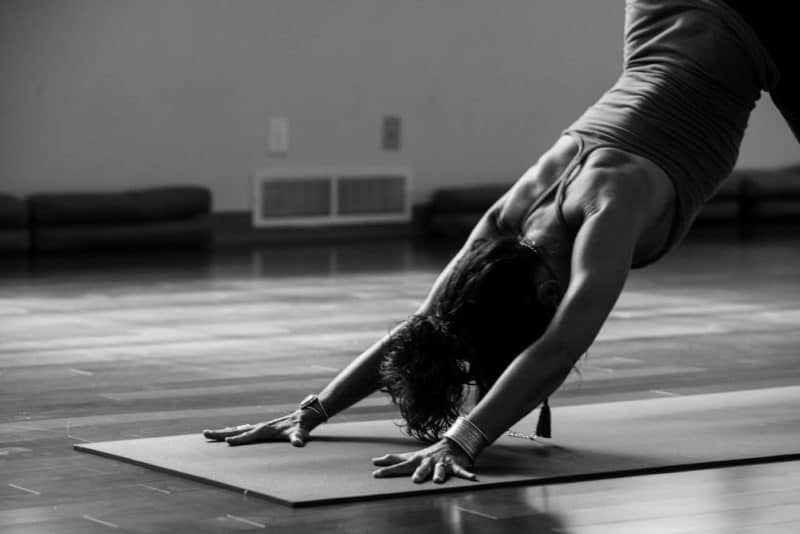Yoga is a collection of ancient meditation techniques, breathing exercises, and specific poses that help one gradually reach a relaxed state of mind. Besides reducing stress and improving mental health, yoga benefits the body by improving physical wellbeing. Most healthcare professionals and wellness experts emphasize that following a yoga routine can potentially help achieve faster recovery in individuals who have undergone surgery or are going through a medical condition. In this article, we will be reviewing the benefits of yoga and discussing ways through which you can help yourself achieve them without any hassle.
Reduces Anxiety and Depression

One of the main benefits of practising yoga is the improved level of mental health. Cortisol is a hormone released by the brain that can induce stress. Yoga helps a lot in stress management by controlling the levels of cortisol in our bodies and ensuring that the stress levels are kept low. Furthermore, several scientific studies have shown that following a yoga routine can significantly reduce anxiety and depression while improving quality of life. Individuals experiencing mental health conditions like post-traumatic stress disorder (PTSD) can practice meditation and yoga to relieve the symptoms experienced by the health issue. However, yoga gurus emphasize the fact that while performing yoga, decluttering the brain from thoughts, living in the moment, and finding a sense of peace would potentially help control mental health conditions.
Reduces Inflammation
Whenever our body comes under stress due to a medical condition or strenuous physical activity, the tissues of the affected area trigger an immune response which causes inflammation. As a result, the people experiencing inflammation have complaints of body aches and pain. However, when the body is under extreme levels of stress, chronic inflammation can occur that can further trigger several diseases like diabetes, heart diseases, and even cancer. An individual with a yoga routine will be less likely to be affected by extreme physical stress levels when compared to the one who doesn’t practice meditation or yoga.
Improves Balance
Performing synchronized movements and practising breathing patterns get the muscles to gain strength while improving flexibility. There are several types of yoga routines that you can follow according to the set goals. Individuals aiming to improve their balance can try weight balancing poses or go for SUP yoga for better outcomes. According to this NIXY Venice yoga review, having a SUP paddle boat built with quality materials and the right specifications makes the yoga routine much more fun and helps you achieve the best possible results. If you are considering trying paddle boat yoga, remember to check the available options for a paddleboat and read reviews from authentic sources that will help in choosing the one that suits them best.
Better Breathing
Yogic breathing is a practice that helps control breathing by performing several breathing exercises. Almost every form of yoga incorporates breathing exercises and techniques that increase the vital capacity of lungs, help them to heal properly, and even keep vital organs healthy. Several studies suggest that these breathing exercises help people affected by asthma, COPD, and related lung diseases in controlling the symptoms.
Promotes Sleep

Health conditions like obesity, depression, poor lifestyle, and inadequate sleep are increasingly affecting people of all ages. Studies have shown that these conditions can be controlled if yoga is practised daily. Yoga improves the natural sleep cycle by promoting the release of hormones and chemicals capable of controlling the sleep cycle. Furthermore, the quality of sleep improves by many folds, as reported in numerous studies. The candidates volunteering in these studies reported longer sleep hours without experiencing any sleep disturbances.
Quality of Life
As mentioned earlier, healthcare professionals are increasingly adopting yoga and meditation as an adjunct therapy for several chronic health conditions to better manage their lifestyles. Practising yoga elevates the mood, wards off anxiety, improves sleep quality, which collectively boosts up the quality of life. There are even reported cases of cancer as well; patients found yoga beneficial in controlling symptoms like body aches, inflammation, chronic pain, and reducing anxiety. Furthermore, yoga leaves positive effects on the body, lets you be socially active, and enjoy life to the fullest.
There are a plethora of other benefits of yoga that include improved self-care, pain relief, and promoting healthy eating habits. Many studies have confirmed the positive effects of yoga on physical and mental health, while many are still ongoing. Start with practising yoga for a few days a week and tweak the routine as you go through the learning curve so that you can achieve the best results.

